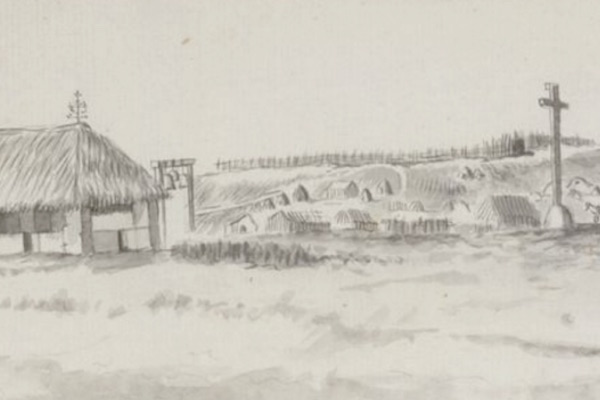After the United States secured its independence from Great Britain in 1783, a passion for liberty and sovereignty began to spread to other nations in the Americas. The French Revolution, begun in 1789, further promoted ideas of “liberty, equality, and fraternity.” In the eighteenth century, Latin American peoples were burdened by colonial control imposed through high taxes, a very powerful church, oppressive working conditions including slavery. To change these conditions, various leaders began movements that would alter the political and cultural landscape of this region: Toussaint L’Ouverture in Haiti (1791), Miguel Hidalgo in Mexico (1810), José de San Martin in what is now Argentina, Chile, and Peru (1808), and Simón Bolívar in what is now Colombia, Venezuela, Ecuador, and Peru (1808). (Although Haiti is quite different from the other revolutionary movements listed in this set, its revolution is a turning point in Latin American history.) With European powers like France and Spain occupied with the Napoleonic wars and their aftermath, Latin American territories began to slip free from colonizers’ control. Only some attempts at independence were fully successful, but seeds sowed by these early revolutions would yield a great harvest in years to come. In this set, students will begin to see how a group of revolutionaries shaped both the map and the mindset of Latin American nations.
 A map of colonies in Latin America on the eve of revolution, excerpted from Rise of the Spanish-American Republics by W.S. Robertson, 1921.
A map of colonies in Latin America on the eve of revolution, excerpted from Rise of the Spanish-American Republics by W.S. Robertson, 1921. A portrait of Father Miguel Hidalgo, a leader of the Mexican independence movement who was eventually captured and executed.
A portrait of Father Miguel Hidalgo, a leader of the Mexican independence movement who was eventually captured and executed. An excerpt from the preface to The Life and Times of Miguel Hidalgo y Costilla by Arthur Howard Noll, 1910.
An excerpt from the preface to The Life and Times of Miguel Hidalgo y Costilla by Arthur Howard Noll, 1910. An 1805 portrait of Toussaint L’Ouverture, leader of Haitian independence, who led a slave revolt and was known as the “Black Napoleon.”
An 1805 portrait of Toussaint L’Ouverture, leader of Haitian independence, who led a slave revolt and was known as the “Black Napoleon.” An excerpt from the forward to The History of Toussaint L’Ouverture by James Stephen, published in 1814.
An excerpt from the forward to The History of Toussaint L’Ouverture by James Stephen, published in 1814. An excerpt from J.R. Beard’s biography of Toussaint L'Ouverture that compares L’Ouverture and Napoléon Bonaparte.
An excerpt from J.R. Beard’s biography of Toussaint L'Ouverture that compares L’Ouverture and Napoléon Bonaparte. A 2005 map created by Michael Siegel that places major battles of the Haitian Revolution during the years 1793 to 1809.
A 2005 map created by Michael Siegel that places major battles of the Haitian Revolution during the years 1793 to 1809. A portrait of Simón Bolívar from 1827.
A portrait of Simón Bolívar from 1827. An excerpt from Simon Bolivar: “El Libertador,” by F. Loraine Petre, published in 1910.
An excerpt from Simon Bolivar: “El Libertador,” by F. Loraine Petre, published in 1910. An image of a statue of Simón Bolívar by Pietro Tenerani, excerpted from Rise of the Spanish-American Republics by W.S. Robertson, 1921.
An image of a statue of Simón Bolívar by Pietro Tenerani, excerpted from Rise of the Spanish-American Republics by W.S. Robertson, 1921. A portrait of José de San Martin.
A portrait of José de San Martin. An excerpt from Makers of South America, by Margarette Daniels, published in 1916.
An excerpt from Makers of South America, by Margarette Daniels, published in 1916.







